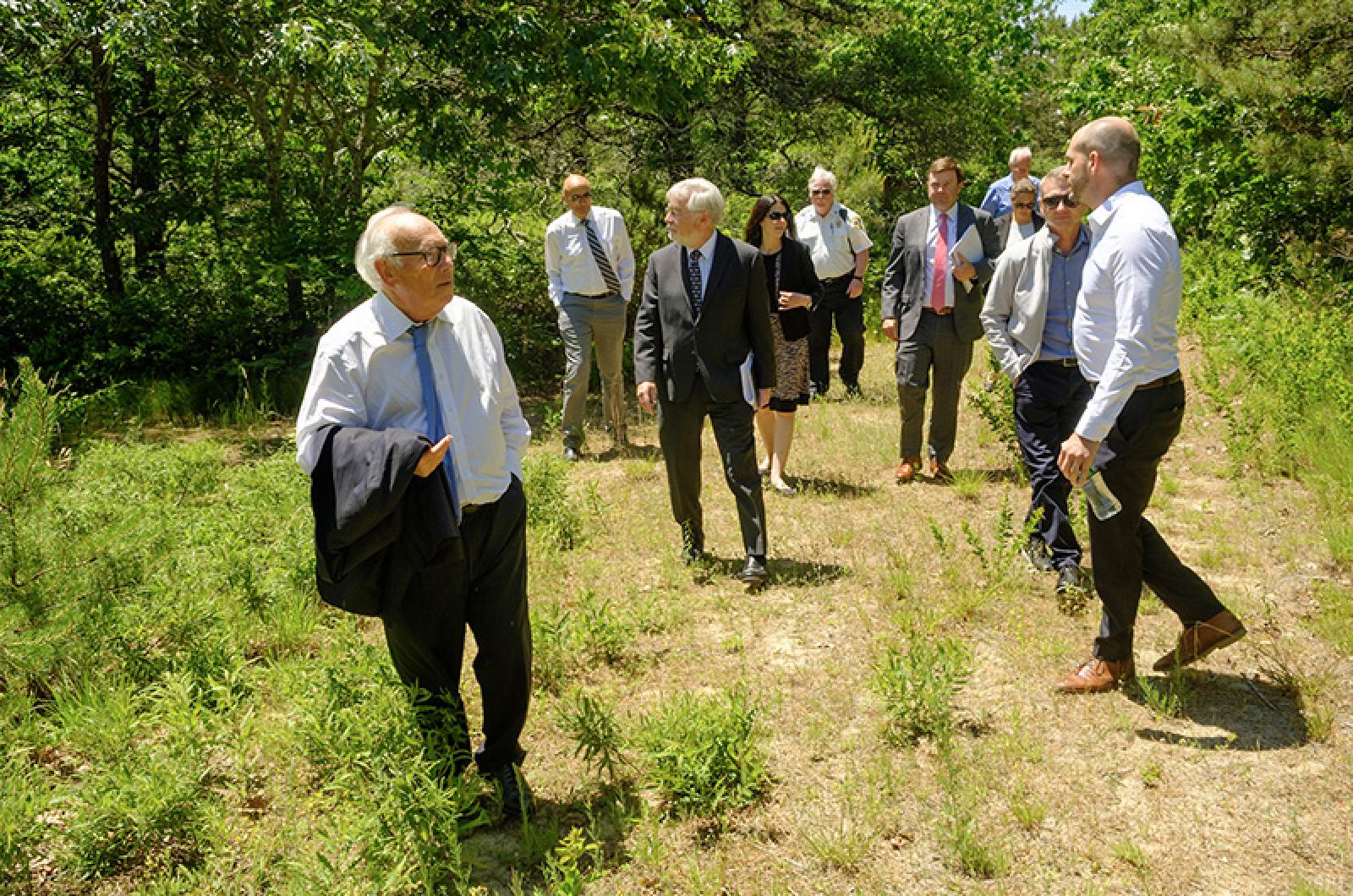A Superior Court judge on Tuesday upheld the Martha’s Vineyard Commission’s denial of a major Edgartown residential development, affirming the commission’s broad powers over development on the Island.
In a 43-page decision, the Hon. Paul Wilson ruled that, despite several flaws in the commission’s denial of the Meeting House Way subdivision proposed for the outskirts of Edgartown, the MVC has wide-ranging authority granted by the state to conclude that a private development of primarily vacation homes was a danger to the Island’s unique character.
“The case is made more difficult by the fact that the commission strained for reasons to deny Meeting House the right to build its development, supporting its denial with some reasons that I have found insupportable as a matter of fact,” he wrote.
“But certain other bases for the Commission’s decision – including its concern about the use of the property for large homes likely to be purchased as vacation residences – were factually justified,” he continued.
The developers behind Meeting House Way purchased the 54-acre parcel in 2018 for $6.6 million. Their original plan was to subdivide the undeveloped property in 36 market rate house lots. During two years of hearings before the MVC, the plan was modified several times, reducing the house lots from 36 to 28, setting aside open space and creating 14 affordable townhouses on a 29th lot.
Ultimately, the commission voted 10-4 in 2020 to deny the plan, citing various environmental concerns and concluding that the size and configuration of the proposed homes were out of scale and character for the Island and did not address the Vineyard’s need for affordable housing.
The developers then appealed the decision, contending the commission lacked the authority to deny the subdivision based on an unwelcoming attitude toward luxury housing likely to be purchased by people from off-Island. The case went to trial last year.
In ruling, the judge indicated sympathy with the developers, noting they had spent millions of dollars on a property that had been identified as “somewhat suitable” for development in the commission’s own Island Plan.
“And yet Meeting House found itself before a regional planning agency that disliked the size and style of its planned subdivision and the likely audience for the proposed lots, and therefore prevented it from seeking permits – permits that it believes it would have successfully obtained – from the town of Edgartown,” the judge wrote.
He also criticized aspects of the commission’s decision, finding its concerns about the project’s probable impact on wastewater and demand on town services were unjustified.
For example, the commission had cited as a detriment of the proposed project that it would use existing sewer capacity that might otherwise be used for affordable housing, thus hastening the need for additional infrastructure.
But the judge said there was no evidence presented to support that “opportunity cost” or to provide a timeline when it might occur.
“In other words, rather than allocate the currently available sewer capacity to the proposed Meeting House development, the Commission wanted to preserve that capacity for future use by some hypothetical, otherwise unspecified less-expensive form of housing,” Mr. Wilson wrote.
The judge found other aspects of the denial to be credible.
Based on expert testimony at trial, Mr. Wilson estimated that the cost of buying a lot and building one of the market rate homes envisioned by the plan would be between $3 million and $4 million, an amount that he agreed would be out of reach for most Islanders. He also found that the developers’ plan to create 14 affordable townhouses lacked mechanisms like deed restrictions to ensure that they would remain affordable.
But it was on the larger question of the commission’s authority that the decision turned.
The judge noted that the MVC was specifically created by the state legislature as a planning agency to protect the “unique natural, historical, ecological, scientific, cultural and other values” that make the Island special.
Citing previous decisions from the state Supreme Judicial Court, he concluded that the planning agency had the power to consider the danger of private development and the risks it poses to the Island’s character.
Adam Turner, the commission’s executive director, said Tuesday that he was happy with the decision.
“It reaffirmed what the commission is about and that we acted properly,” he said. “It’s unfortunate that we had to spend that much money to prove that, but that’s the process.”
The commission, which is facing several other lawsuits, incurred at least $400,000 defending the Meeting House Way decision.
Terry Dangel, the Meeting House Way attorney, said he was disappointed in the decision, but noted that Judge Wilson, who is set to retire this month, had a firm understanding of the case.
“He ruled in our favor on almost everything, almost every point we made,” Mr. Dangel said. “There was one point though, that the judge made, and that was a pure legal issue: does the commission have the authority to deny a private development of houses, some of which will be occupied by vacation and seasonal owners, purely on that basis.”
Mr. Dangel declined to say whether his clients had plans to appeal.







Comments (19)
Comments
Comment policy »